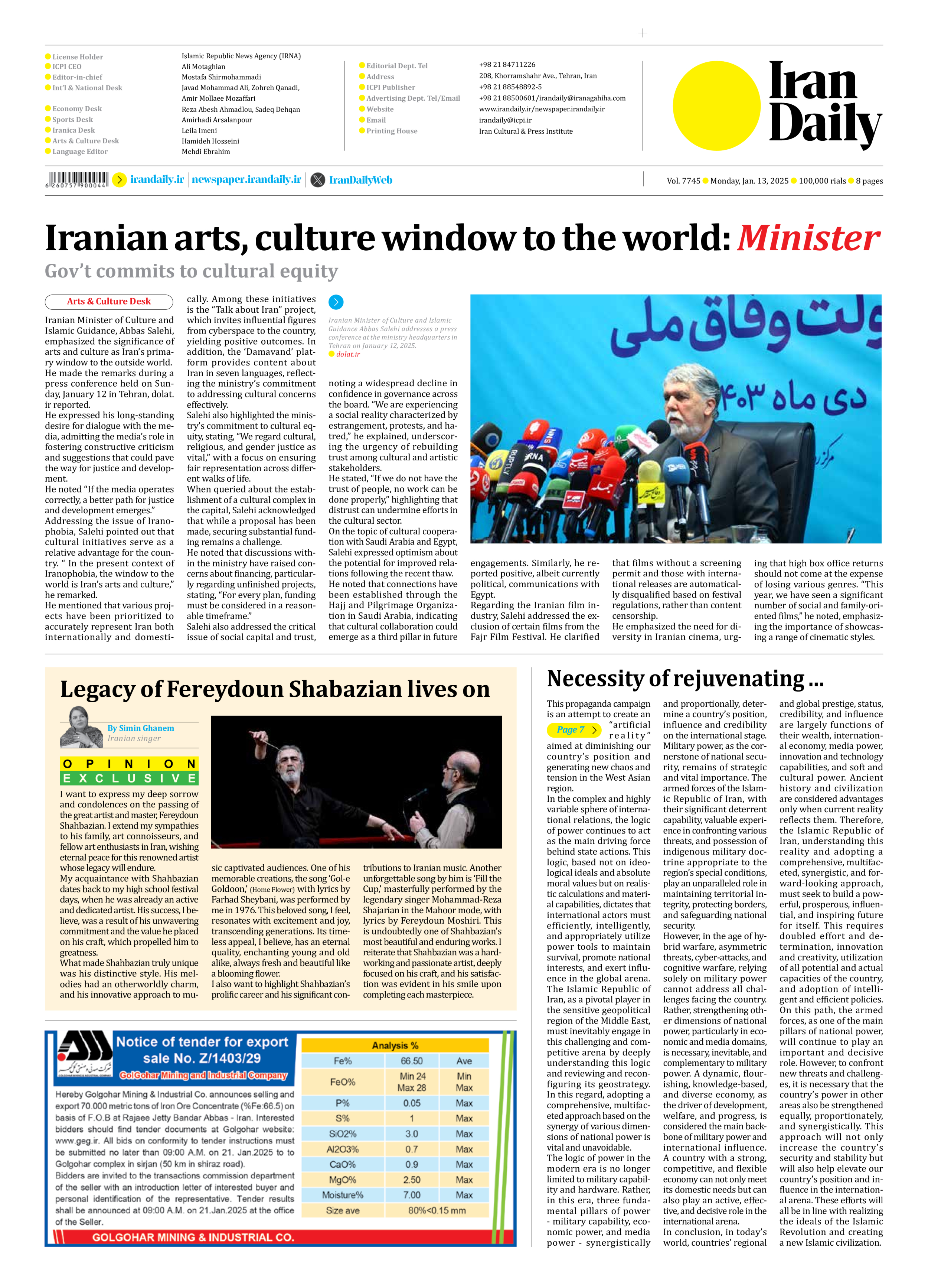
Iranian arts, culture window to the world: Minister
Gov’t commits to cultural equity
Iranian Minister of Culture and Islamic Guidance, Abbas Salehi, emphasized the significance of arts and culture as Iran’s primary window to the outside world.
He made the remarks during a press conference held on Sunday, January 12 in Tehran, dolat.ir reported.
He expressed his long-standing desire for dialogue with the media, admitting the media’s role in fostering constructive criticism and suggestions that could pave the way for justice and development.
He noted “If the media operates correctly, a better path for justice and development emerges.”
Addressing the issue of Iranophobia, Salehi pointed out that cultural initiatives serve as a relative advantage for the country. “ In the present context of Iranophobia, the window to the world is Iran’s arts and culture,” he remarked.
He mentioned that various projects have been prioritized to accurately represent Iran both internationally and domestically. Among these initiatives is the “Talk about Iran” project, which invites influential figures from cyberspace to the country, yielding positive outcomes. In addition, the ‘Damavand’ platform provides content about Iran in seven languages, reflecting the ministry’s commitment to addressing cultural concerns effectively.
Salehi also highlighted the ministry’s commitment to cultural equity, stating, “We regard cultural, religious, and gender justice as vital,” with a focus on ensuring fair representation across different walks of life.
When queried about the establishment of a cultural complex in the capital, Salehi acknowledged that while a proposal has been made, securing substantial funding remains a challenge.
He noted that discussions within the ministry have raised concerns about financing, particularly regarding unfinished projects, stating, “For every plan, funding must be considered in a reasonable timeframe.”
Salehi also addressed the critical issue of social capital and trust, noting a widespread decline in confidence in governance across the board. “We are experiencing a social reality characterized by estrangement, protests, and hatred,” he explained, underscoring the urgency of rebuilding trust among cultural and artistic stakeholders.
He stated, “If we do not have the trust of people, no work can be done properly,” highlighting that distrust can undermine efforts in the cultural sector.
On the topic of cultural cooperation with Saudi Arabia and Egypt, Salehi expressed optimism about the potential for improved relations following the recent thaw.
He noted that connections have been established through the Hajj and Pilgrimage Organization in Saudi Arabia, indicating that cultural collaboration could emerge as a third pillar in future engagements. Similarly, he reported positive, albeit currently political, communications with Egypt.
Regarding the Iranian film industry, Salehi addressed the exclusion of certain films from the Fajr Film Festival. He clarified that films without a screening permit and those with international releases are automatically disqualified based on festival regulations, rather than content censorship.
He emphasized the need for diversity in Iranian cinema, urging that high box office returns should not come at the expense of losing various genres. “This year, we have seen a significant number of social and family-oriented films,” he noted, emphasizing the importance of showcasing a range of cinematic styles.







